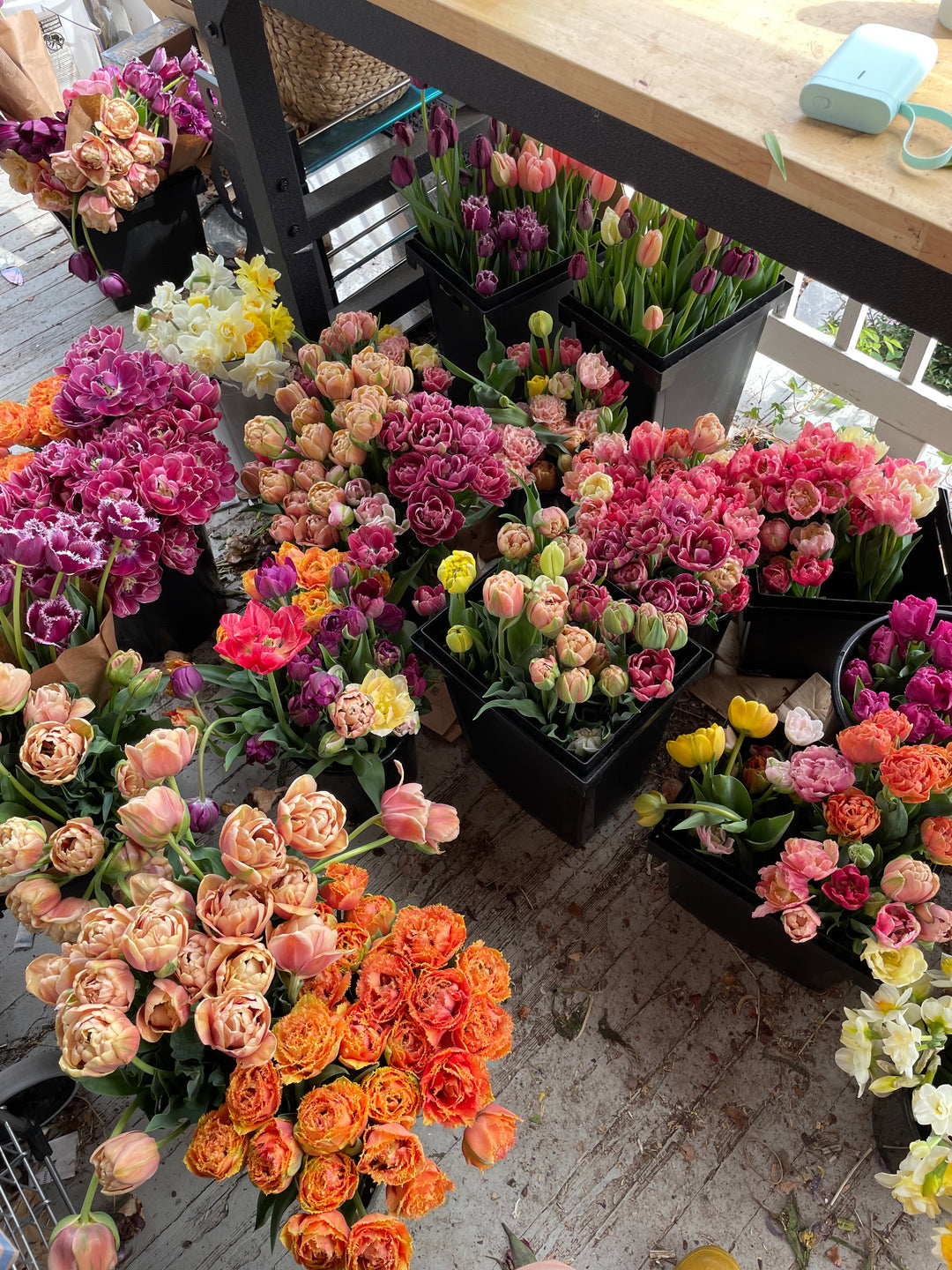Anemone, Dahlias and Ranunculus. Do I have to dig them up for Winter?
Do I have to dig them up for winter?
The first year we grew dahlias, in zone 7, we dug 'em all up. Then we soaked in epsom salt baths for a week! It was either leave them in the ground or stop growing dahlias. Obviously, we gotta grow dahlias! As the colder months approach, many gardeners wonder what to do with their beloved Anemone, Dahlias, and Ranunculus. The good news is that you don't necessarily have to dig them up for winter. These plants can survive in the ground if you take the right precautions.
Will they survive?
Maybe... Anemone, Dahlias, and Ranunculus are all hardy plants that can withstand cold temperatures. However, their ability to survive the winter largely depends on your climate. If you live in an area with mild winters, zone 7 and above, these plants may be able to stay in the ground without any extra protection. The magic number is 25 degrees, soil temperature. Colder than that for more than a few hours and you're in trouble. If you experience harsh winters with below freezing temperatures, it's best to take some steps to ensure their survival.
How to store them?
If you decide to dig up your Anemone, Dahlias, and Ranunculus for winter, proper storage is crucial. Here's a step-by-step guide to help you:
- Wait until the first frost has blackened the foliage before digging up the plants.
- Gently lift the plants from the ground, being careful not to damage the tubers or corms.
- Remove any excess soil from the roots.
- Allow the tubers or corms to dry in a well-ventilated area for a few days.
- Once dry, place the tubers or corms in a box or container filled with dry peat moss or sawdust.
- Store the container in a cool, dark place where the temperature remains between 40-50°F (4-10°C).
How to protect them in ground?
Sarah Raven protects her dahlias by dumping a bucket full of compost on top of each tuber.
Jenny Love of Love and Fresh Flowers in Philadelphia, cuts down the dahlia foliage and covers them with leaf mulch and covers the beds with used billboards as waterproof tarps.
Erin Benzakein of Floret is a champion of digging, dividing and storing.
Most of our flower friends grow ranunculus and anemone in tunnels to protect them.
At the HHF Farmhouse we plant dahlias on our southern slope with lots of sun and drainage. We've found the wet to be our tubers and corms greatest enemy. We top the beds with a couple inches of compost and that's it. Established Ranunculus and Anemones go on a SE slope to aid drainage and do nothing unless the soil temperature dips below 25 degrees. We use frost cloth to cover in extreme temps. All new or early spring plantings of Ranunculus and Anemone are covered with frost cloth Agribon 30 for all of winter and uncovered when all chance of hard freeze (below 28) is over.
The best practices if you choose to leave your Anemone, Dahlias, and Ranunculus in the ground, there are a few steps you can take to protect all delicate corms and tubers:
- After the first deep frost, cut back any blackened foliage to about 2-3 inches above the ground.
- Apply a layer of mulch, such as straw or shredded leaves, Compost around the base of the plants.
- This mulch will help insulate the soil and protect the tubers or corms from freezing temperatures.
- For added protection, you can also cover the area with a layer of burlap or a frost blanket.
By following these tips, you can ensure that your Anemone, Dahlias, and Ranunculus have the best chance of surviving the winter and thriving again in the spring. Remember, every garden is unique, so it's important to consider your specific climate and growing conditions when deciding how to care for your plants during the colder months. Extra effort will be rewarded. However... We give you permission to put new varieties in every year and relax all winter. Happy gardening.
Cheers!

Leave a comment